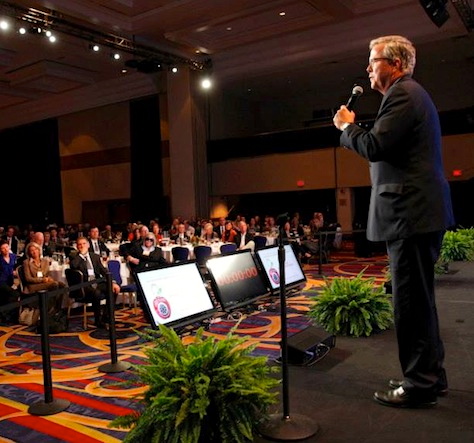Is he more like his brother or his father?
![]()
One of the most vexing questions in US politics is whether the foreign policy of former Florida governor John Ellis ‘Jeb’ Bush will look more like his father’s or his brother’s. Bush announced he would ‘actively explore the possibility’ of a presidential campaign on Tuesday.
The common perception is that Bush’s father, George H.W. Bush, the 41st president of the United States, was a moderate and a foreign policy realist. He largely navigated the United States to the post-Cold War world with deftness, and he wisely held back US force against Saddam Hussein’s Iraq during the 1990-91 liberation of Kuwait. Bush père surrounded himself with hard-nosed realists like Brent Scowcroft, his national security adviser, and James A. Baker III, his secretary of state.
Conversely, the foreign policy of Jeb’s brother, George W. Bush, the 43rd president of the United States, weighs heavily his response to the September 2001 terrorist attacks, the onset of the global ‘war on terror,’ and the invasion and subsequent occupation of Iraq that ousted Saddam and presided over a sectarian civil war between competing Sunni and Shiite forces. Bush frère deployed muscular language in stark tones about democracy, freedom and embraced a neoconservatism that set itself as realism’s counterpart, with support from officials like Donald Rumsfeld, his defense secretary, John Bolton, his ambassador to the United Nations, and Dick Cheney, his powerful vice president.
On the basis of idle speculation and one speech earlier this month in Miami, commentators are already declaring that Jeb Bush, who might run to become the 45th president of the United States, is closer to his brother’s foreign policy than his father’s.
Those false dichotomies will only calcify before they become more nuanced. Continue reading What would Jeb Bush’s foreign policy look like?
